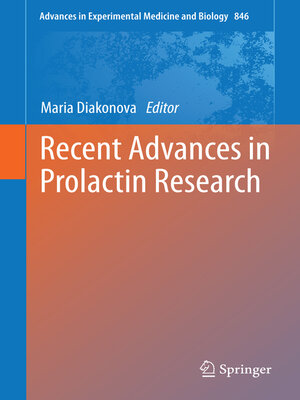Recent Advances in Prolactin Research
ebook ∣ Advances in Experimental Medicine and Biology
By Maria Diakonova, PhD

Sign up to save your library
With an OverDrive account, you can save your favorite libraries for at-a-glance information about availability. Find out more about OverDrive accounts.
Find this title in Libby, the library reading app by OverDrive.



Search for a digital library with this title
Title found at these libraries:
| Library Name | Distance |
|---|---|
| Loading... |
Recent Advances in Prolactin Research summarizes the current knowledge of prolactin (PRL), PRL receptor, PRL-dependent signaling pathways, the role of PRL in oncogenesis and PRL crosstalk with other oncogenic factors. The chapters are written by experts in these fields and focus on identifying and reviewing timely experimental findings that provide new insights into the expanding role of PRL in the pathophysiology associated with a variety of human conditions.
Prolactin is a peptide hormone that is best known for its role in lactation. Prolactin also has an influence on hematopoiesis and angiogenesis, and is involved in the regulation of blood clotting through several pathways. Although PRL was discovered more than 80 years ago, the understanding of PRL signaling and its relationship to various pathologies is still very incomplete. PRL is not only a pituitary hormone with an important role in reproduction, but PRL also acts as a cytokine, modulating a wide variety of physiological processes. For example, data gathered during the last decade have demonstrated that locally produced PRL acts as the autocrine/paracrine factor and plays a contributory role during breast oncogenesis. In fact, the scientific and clinical communities have suggested that the manipulation of the PRL axis may lead to the successful treatment of breast cancer. However, recent work has demonstrated that the role of the PRL axis is much more complex than first envisaged.







